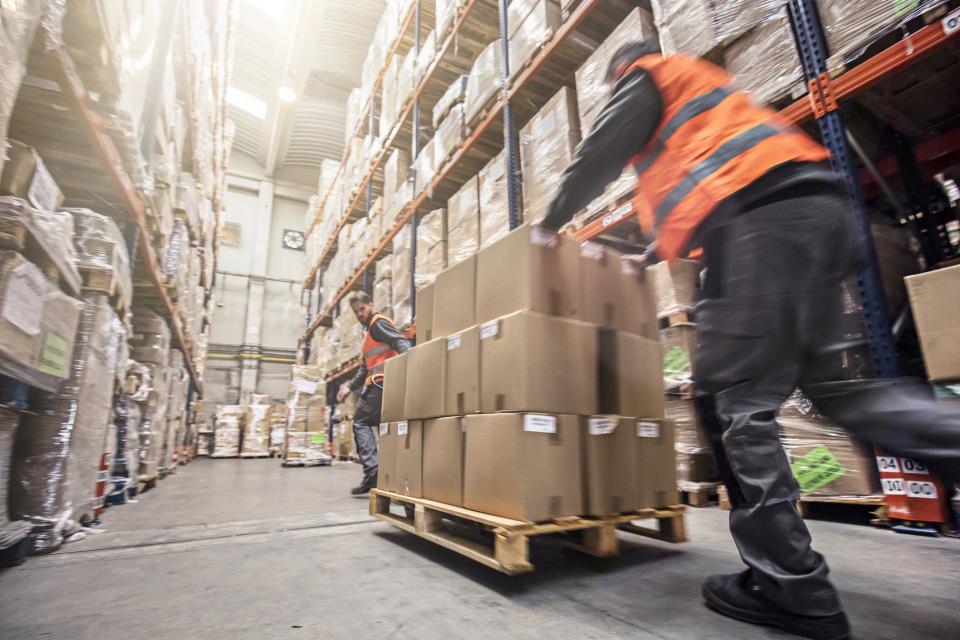A government study has determined that 18,000 skilled workers are urgently needed for New Zealand’s logistics sector.
A critical labour shortage in the freight and logistics sector is set to widen from 4,700 to 18,000 workers by 2028 without immediate intervention, according to new government research.
Industry experts say unless addressed, the growing skills shortage will constrain the future growth of all sectors of New Zealand’s economy.
The research commissioned by Hanga-Aro-Rau, the Manufacturing, Engineering and Logistics Workforce Development Council, found the highly fragmented logistics sector struggles to attract and retain workers and has lost thousands of employees to other industries and lucrative overseas roles over the past two years.
The report also uncovered evidence of discrimination and pay inequity within the sector - creating barriers to career progression for wahine and Pacific peoples, in particular.
The study found while targeted training programmes have helped boost the number of Maori in higher skill level roles to 27%, the equivalent proportion for Pacific workers grew by 3% over the past decade.
The report’s authors also found that the logistics workforce gap is widening faster than the manufacturing and engineering sector and that an exodus of over 4,600 workers (or 3.5% of the workforce) leaving the industry in the past two years was led by Generation Z (aged 15-24) and, almost a quarter (23%) of workers opted for opportunities offshore where wages are significantly higher.
The industry is now looking to attract gamers who have the requisite skills needed to operate the new automation, robotic and drone technologies which are expected to be adopted in the future.
Samantha McNaughton (pictured below) deputy chief executive of Hanga-Aro-Rau, one of six Government-funded Workforce Development Councils (WDCs) tasked with aligning the vocational educational systems with industry needs and providing support for Maori businesses and iwi development, says a functional freight and logistics industry underpins the growth of every sector of the economy.
She says the report identifies a number of systemic issues facing logistics firms and calls for the immediate introduction of an industry-wide strategic approach to reduce barriers to training.
“The logistics sector covers the movement of goods throughout our national and international supply chains - including order processing, inventory management and distribution across our air, sea and land ports.
“This industry acts as a critical enabler and lynchpin in the economy - intersecting and supporting the growth of every other sector in some way.
“The new report shows the pandemic has accelerated the adoption of automation within logistics firms as they attempt to mitigate the international impact of skilled labour shortages.
“Rather than reducing the size of the workforce, these new technologies are changing the nature of the roles within the industry and are creating opportunities to grow through a more gender and culturally diverse workforce as well as facilitating the entry of more disabled workers into the sector for the first time,” she says.
Dom Kalasih, interim chief executive of road freight association Ia Ara Aotearoa Transporting New Zealand, says growing capacity constraints in the logistics sector will ultimately lead to delays in meeting customer expectations, shortages and price increases for consumer goods.
He says the rural sector and food manufacturers are likely to be among the first to see the impact of labour skills shortages.
“When you have a scenario where demand for services significantly outstrips available supply - such as that forecast for the logistics sector, then market forces will look to prioritise the allocation of resources.
“What we can expect to see is that if you have perishable goods such as live cattle or horticultural produce that need to get to market within a certain timeframe, then we are likely to see changes in the freight sector away from lower priority shipments to meet that demand.
“There will be costs related to these changes, and it will cost more every time that food product is moved to the manufacturer, to the wholesaler and to the retailer.
“Ultimately this will have a flow-on effect to the cost of goods paid by the consumer, and it will also mean shipping delays for non-perishable products,” he says.
Lisa Tai (pictured below), Pås Peau (Pasifika Services Group) lead at Deloitte, says addressing the barriers to progression faced by Pacific peoples will be essential to mitigating the growing skills shortage within the industry.
She says, like many other sectors, it is concerning to see Pacific peoples poorly represented at senior and management levels within the freight and logistics industry - with many reporting a lack of clarity and information available on development opportunities and career progression pathways.
“The report also shows that Pacific peoples make up an increasingly large proportion of the logistics sector and that the number of Pacific workers has grown by 48% over the past decade.
“Part of the appeal of the industry may be the fact that Pacific peoples are drawn to workplaces where there may be existing networks and connections through community and family ties, however, more needs to be done to support this part of the workforce to grow into senior positions.
“Supporting Pacific peoples in the logistics sector is a key growth opportunity,” she says.
Tai says the research shows 2,300 Pacific workers would need to be trained at the highest skill levels within the next five years to achieve equity, however, less than a third of companies have targeted Pacific initiatives to support the development of Pacific staff.
She says that there are at least 17 Pacific nations and cultural identities represented in New Zealand’s workplaces and as many Pacific native languages are spoken in this part of the world.
“While developing Pacific specific interventions and initiatives may be perceived as complex, the logistics industry is now facing a growing skills crisis and will need to identify new training methodologies to better support and develop the experience and skill set of Pacific workers.
“It is imperative that any solutions are co-created and designed with Pacific workers,” she says.
McNaughton says the research will be presented to a summit on June 1 where employers, industry stakeholders, government, and vocational education participants will collaborate on developing solutions to the skills shortages and workforce development challenges faced by the sector.



 ,
, 